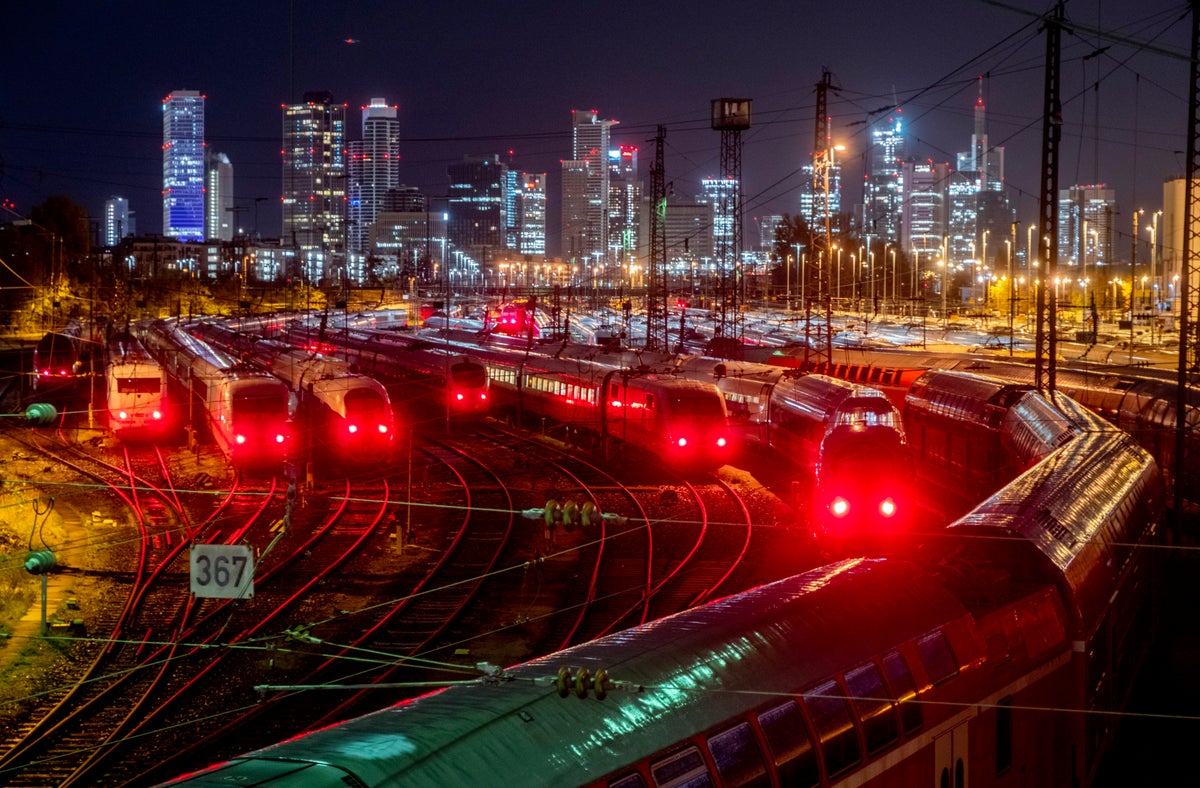
Germany's national railway operator ran a drastically reduced schedule on Thursday as a union called a 20-hour strike aimed at increasing the pressure in a bitter dispute over pay and working hours.
The strike by drivers and other workers in the GDL union began at 10 p.m. on Wednesday and was scheduled to end at 6 p.m. on Thursday. Limited “warning strikes” are a common tactic in German pay negotiations.
The main national railway operator, state-owned Deutsche Bahn, expected to run about 20% of its normal long-distance service. Regional and local services also were affected, though to varying degrees because some are run by private operators and not all of those were targeted by the strike.
The dispute between Deutsche Bahn and GDL is in its early stages, but already is looking unusually difficult. A central issue is the union's call for shift workers' hours to be reduced from 38 to 35 hours per week without a pay reduction, a demand at which the company so far has balked.
GDL is seeking a raise of 555 euros ($593) per month for employees plus a payment of up to 3,000 euros ($3,257) to counter inflation. After negotiations started last week, Deutsche Bahn said it had made an offer that amounts to an 11% raise.
Negotiations were due to resume on Thursday, but Deutsche Bahn canceled this week's talks after GDL called the strike.
A dispute between the railway operator and a rival union, the larger and traditionally less aggressive EVG, was settled earlier this year after both sides accepted a proposal by arbitrators.







